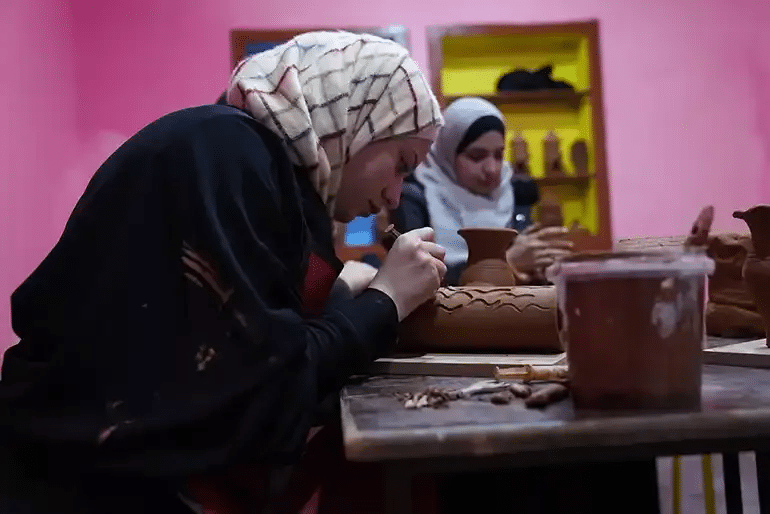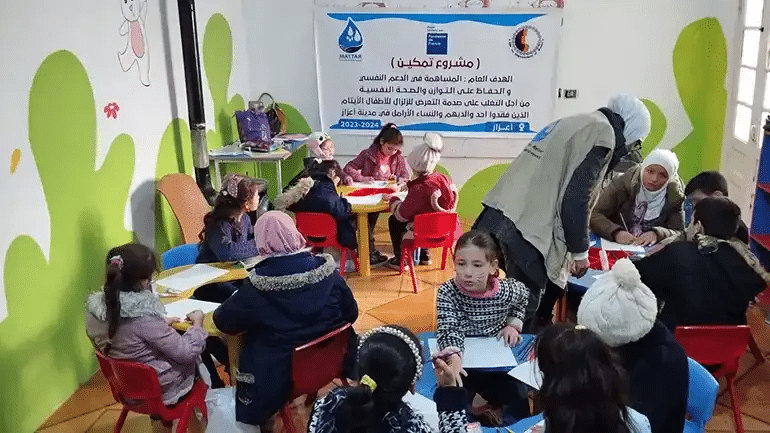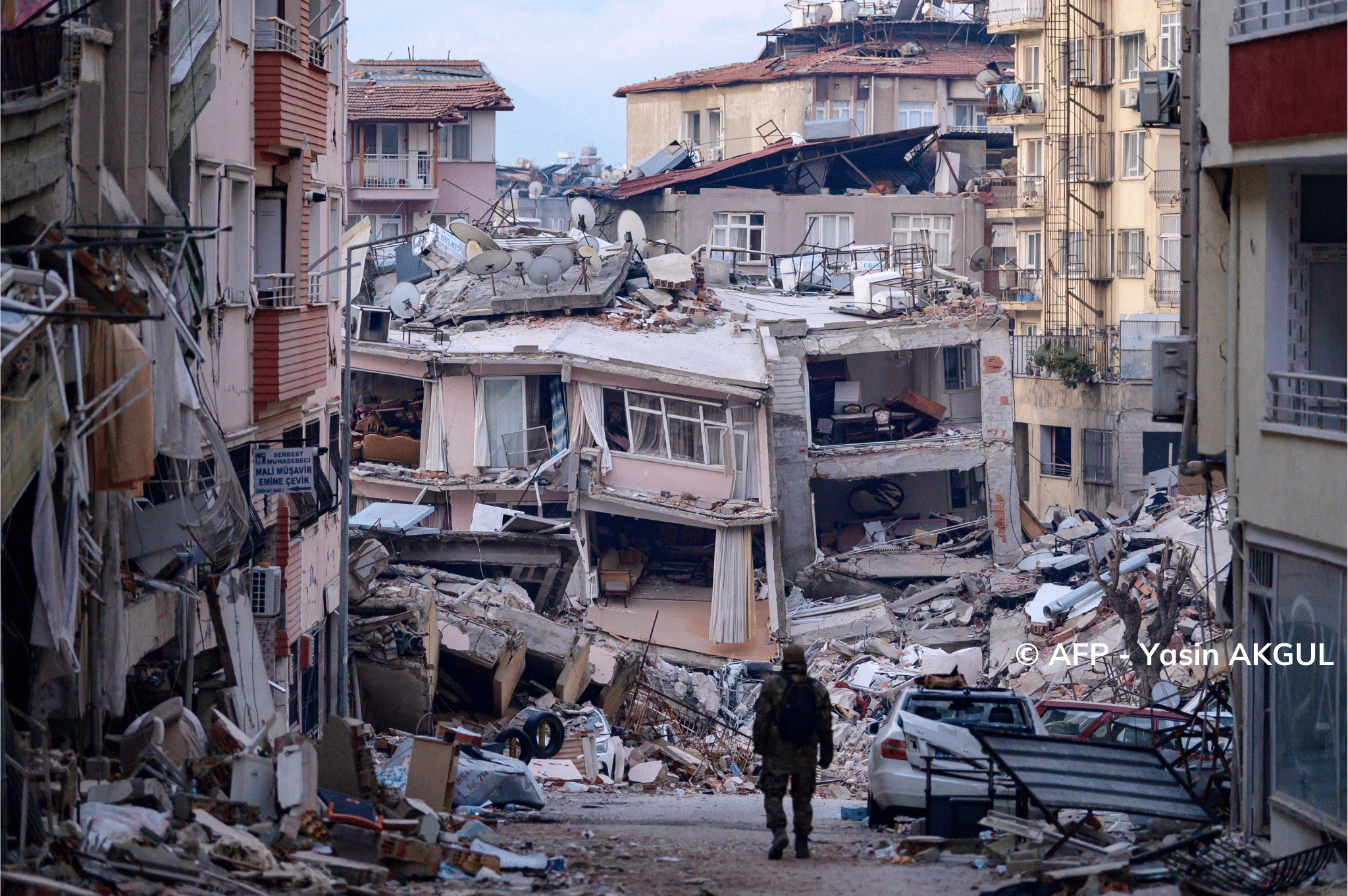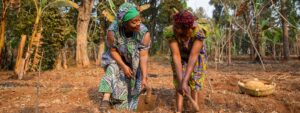Meeting Basic Needs
In the town of Jinderes, on the border with Turkey, which has become a major place of refuge for many Syrians, local associations are working with the authorities to provide lighting in refugee camps. Fondation de France is contributing to the installation of solar-powered street lamps in 20 refugee camps housing over 2,000 families. 450 lighting units will be deployed in main streets, tents and public facilities.
Access to water also remains a priority. In Northern Syria, Fondation de France is supporting a project in conjunction with local authorities to provide a source of drinking water for the 39 surrounding villages. This will facilitate sustainable access to water, as opposed to distribution by tanker truck.
In the countryside around Jisr-Al Shughour, in north-west Syria, a local association is providing food for people displaced by the earthquake, distributing food baskets to each of the 460 families concerned, i.e. almost 2,300 people, including 1,200 women and 650 children.
Supporting the Most Vulnerable
To strengthen the actions helping Syrian women, considerably weakened by the earthquake, Fondation de France supports, for example, a project in favor of some sixty vulnerable women living alone with their children in the city of Idlib. They are benefiting from workshops and training courses to enable them to make a lasting commitment to an income-generating activity.

In order to help certain particularly vulnerable minorities, such as the Dom and Abdal populations, historically resident in Turkey but also refugees in Syria, the Kirkayak Kültür NGO provides them with humanitarian assistance. Food vouchers and hygiene kits are distributed, and every effort is made to give them access to public services.
More than 6 million children were affected by the two earthquakes (nearly 2.5 million in Turkey and 3.7 million in Syria). Because of their great vulnerability, they receive special support. The Yeced association works in particular with Syrian refugee children in Turkey, who are particularly vulnerable. It provides them with psychological support, as well as school supplies and educational support. In the cities of Aleppo and Azaz, another association supported by Fondation de France, offers psychosocial support to some 70 children who lost their parents in the earthquake.
The aim is to help them overcome their trauma through various recreational activities such as drawing, music and writing. TS banner vignette

Contributing to Reconstruction and Supporting Agriculture
A priority in helping those affected by the earthquake is rebuilding homes. The Turkish NGO IBC is leading a project to build some forty prefabricated houses in the town of Kirikhan. With the help of building professionals, families participate in the construction of their own homes (carpentry, plastering, finishing work…). All construction costs are covered by IBC, and the beneficiaries of the project become the owners of their own homes.
This is a unique and pioneering project in Turkey, carried out in collaboration with public institutions.
In north-west Syria, the area hit hardest by the earthquake, Fondation de France is supporting a program to promote food sovereignty among vulnerable farming communities and preserve the region’s agricultural heritage. The aim is to improve the resilience and food security of vulnerable populations through the production and distribution of local agricultural inputs.




